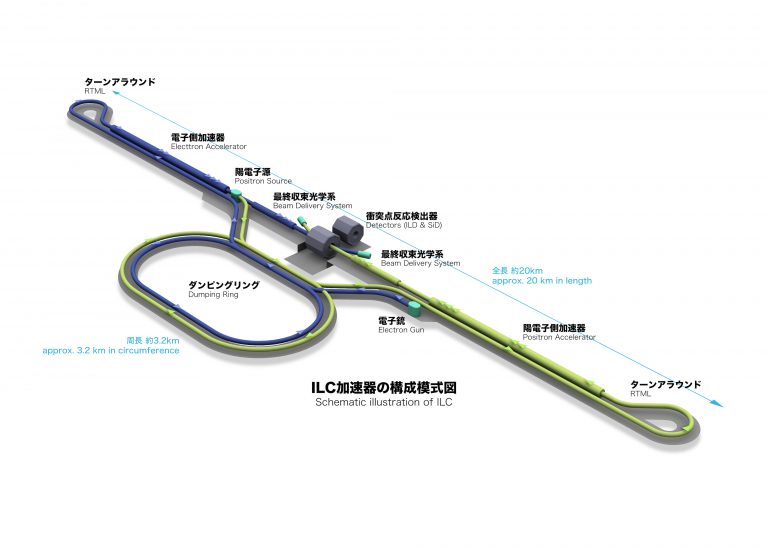Welcome to the webpages of the ILC physics and detector groups in Japan
Introduction
The International Linear Collider (ILC) is a proposed electron-positron collider, which the Japanese government is currently considering hosting.
The major aim of the ILC is to probe the nature of fundamental particles and forces at energies currently beyond our reach, but which were common at the early stages of our universe.
We will do this by precisely measuring the properties of various known states (most significantly the Higgs boson and the top quark): these properties are expected to be influenced by the nature of this as-yet unknown physics at higher scales. The ILC will also make use of it's rather clean experimental environment to make sensitive searches for the direct production of new types of particles not predicted by the current "Standard Model" of particle physics.
a view of the ILC complex, by Rey.Hori
ILC activities in Japan
Several groups based in universities and research institues in Japan are involved in ILC-related activities, coordinated within ILC-Japan and working closely with the ILC International Development Team (IDT).
This includes studies of the physics which can be studied at ILC, designing the accelerator, detectors, infrastructure, and software which will be used to record and analyse the collisions, and working with international, national and local organisations and governments.
These activities are carried out in very close collaboration with research groups from around the globe: the ILC is truly an International project. Most of our physics and detector studies are carried out within the ILD detector concept.
Groups in Japan:
KEK, Iwate University, Iwate Prefectural University, Tohoku University, ICEPP, IPMU (The University of Tokyo), Waseda University, Shinshu University, Nippon Dental University, Osaka University, Hiroshima University, Kyushu University, Saga University, and others.

